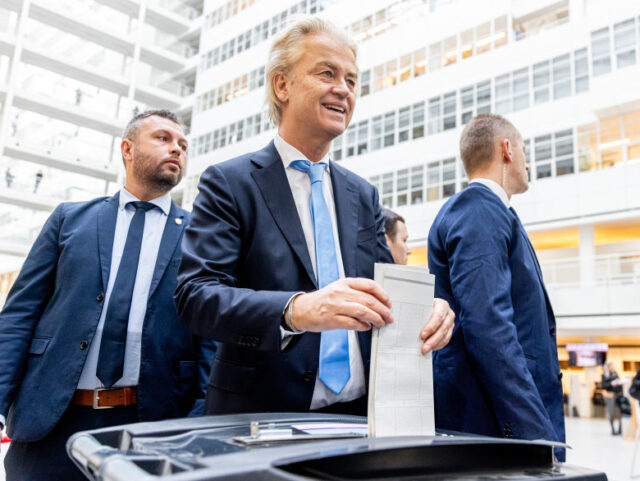European voters are base, hormone-driven creatures who can be manipulated through fear and this may lead to a right-wing surge in the 2024 European Union elections if they ignore the “lucid” left, Commission Vice-President and bloc Foreign Affairs boss Josep Borrell appears to make implicit in remarks to a left-wing newspaper.
More than 400 million eligible voters will be able to cast ballots in the next European Union election in June 2024, one of the largest elections on earth. While the European Parliament isn’t the sole deciding factor in the direction of travel of the Union — it remains dominated by the Commission, after all — veteran Spanish socialist politician Josep Borrell is evidently concerned. Speaking to Britain’s The Guardian newspaper following a speech on the challenges faced by Europe, Borrell felt motivated to launch an apparently ill-natured attack on right-wing politics, accusing them of being base and primitive in nature.
Speaking of the much-discussed possibility of a right-wing populist surge in the June vote, Borrell said he is “afraid of fear”, and that Europeans would “vote because they are afraid”. Claiming to make a scientific defence of his own concerns, the left-wing politician said — presumably in contrast to his own high-minded ideals — that: “It’s scientifically proven that fear in the face of the unknown and uncertainty generates a hormone that calls for a security response. This is a fact.”
The paper reported him as having said the cause of such fears stemmed from “media” and the threats of Europe being bordered by new conflicts in Ukraine and Israel which might push people away from the open borders left to the right. He is said to have remarked: “We are invaded by a media world of threats where we learn about the daily crimes of evil or war, and it creates a hormonal activity directed by fear.
“Parties that can play on fear in human beings and offer bad responses to good questions can attract the support from the European population.”
Implying, it seems, that he considers political forces he supports to be of a much greater intellectual calibre, the European Union’s foreign policy chief said, per the report’s paraphrasing, that voters should back “[political forces that can present a lucid analysis of the situation]”. If voters let him down, then Europe faces an electoral situation “as dangerous as those in the US,” Borrell said.
Speaking in Italy at a conference where he discussed Europe’s problem with the Ukraine conflict on one side and Israel on the other, Borrell again made an appeal to his own particular genius. Portraying himself in the speech as a European Commission Cassandra, Borrell said he’d predicted calamity and conflict for years and that nobody had believed him.
He told the audience at the Grand Continent Summit in Aosta Valley that: “the war against Ukraine is the most important existential threat we are facing. Both are connected, the war in Gaza can weaken the support for Ukraine… if we don’t change course rapidly, if we don’t mobilise all our capacities, it will let Putin win the war in Ukraine.”
Borrell made clear that making Ukraine an EU member state was a key step. He continued: “…everybody went to the Kremlin. Macron, Schulz, everybody was there trying to stop the war. Now we are not going to persuade Putin, Putin has decided to continue the war until the final victory for him.
“But we can support Ukraine, and as I said our effort is big, and becoming a member of the European Union for Ukraine is the biggest security commitment that we may take. European Council asked me please to draw up a security commitment for Ukraine: the first and most important commitment is Ukraine becoming a member of the European Union.”
The foreign affairs boss is one of a powerful group of European Union leaders who see Ukraine being absorbed into the bloc as not just essential, but a matter of destiny. European Commission boss Ursula von der Leyen has spoken of a “call of history” and a “natural horizon”, as well as remarking last year: “…they belong to us. They are one of us and we want them in”.

COMMENTS
Please let us know if you're having issues with commenting.